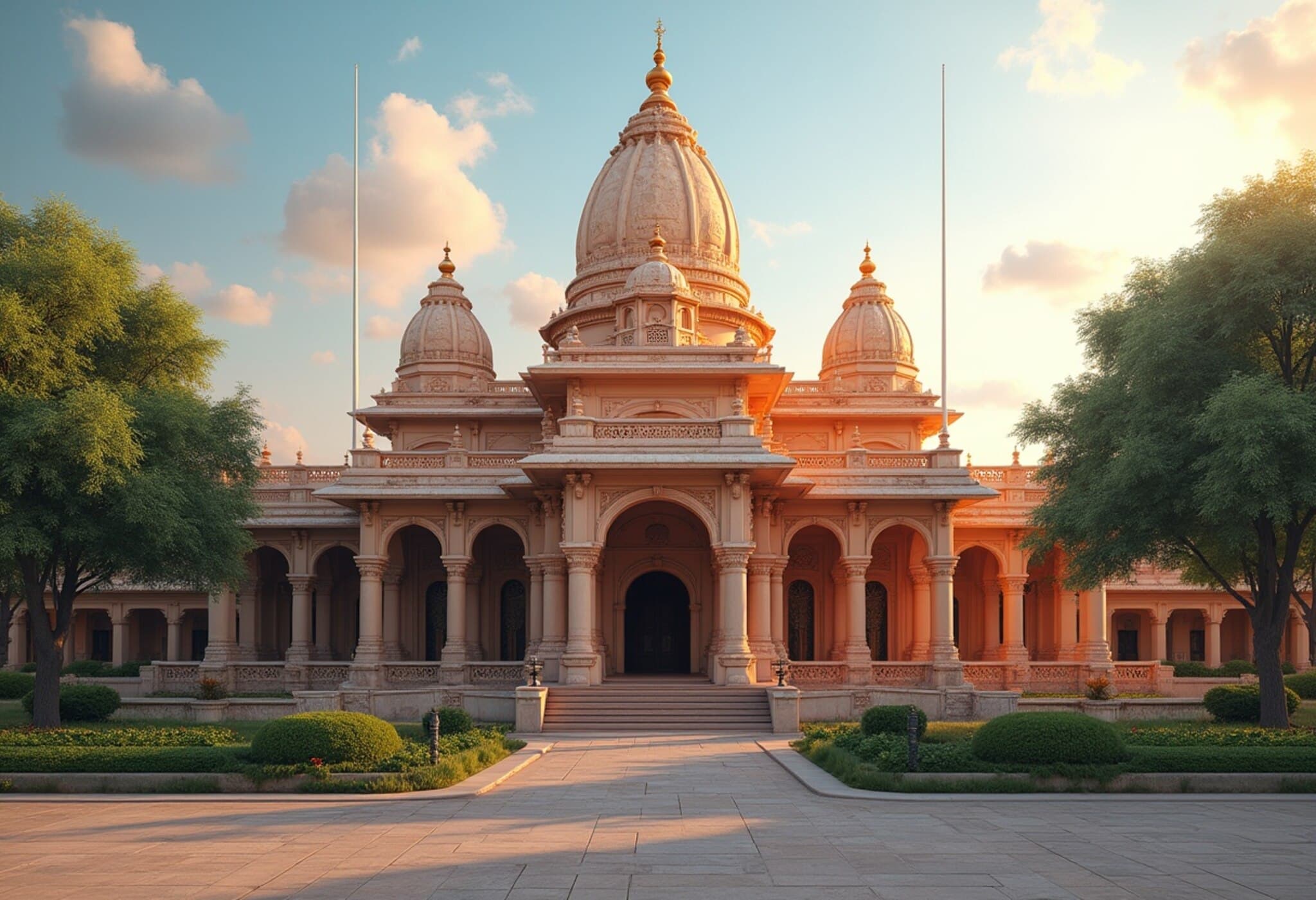Vandalism at BAPS Swaminarayan Temple in Indiana Sparks Outrage
The BAPS Swaminarayan Temple in Greenwood, Indiana, recently became the target of a disturbing act of vandalism, igniting widespread condemnation from the Indian Consulate in Chicago and the broader Hindu community across the United States. The temple’s main signboard was defaced in what officials have described as a reprehensible and targeted attack on a sacred place of worship.
Indian Consulate Calls for Swift Justice and Community Solidarity
In a statement posted on social media platform X, the Indian Consulate termed the desecration as deeply troubling and has officially urged local law enforcement to conduct a thorough and swift investigation. The Consul General personally met with temple devotees, local leaders, and Greenwood’s Mayor to express solidarity and emphasize the importance of community vigilance and unity against such hateful acts.
Pattern of Targeted Attacks on Hindu Temples Across the U.S.
This incident is not isolated. Less than six months ago, the BAPS Shri Swaminarayan Mandir in Chino Hills, California, suffered a similar act of vandalism that drew a robust response from India’s Ministry of External Affairs, condemning the attack “in the strongest terms.” The Ministry also called for enhanced security measures at religious and cultural sites nationwide.
Last year saw comparable incidents targeting BAPS temples in Sacramento and New York, stirring growing concerns about a disturbing trend of hostility directed towards Hindu places of worship and communities across America.
Broader Context: Rising Tensions and Implications for Hindu Communities
- Link to Political Movements: The Coalition of Hindus of North America has highlighted a potential connection between these attacks and the rising tensions amid political activities – notably a planned “Khalistan referendum” in Los Angeles, which has polarized perceptions and sentiments.
- Community Response: BAPS Public Affairs has firmly declared that the Hindu community will “stand steadfast against hate” and continue fostering safety and respect for all places of worship.
- Need for Addressing Hate Crimes: These repeated incidents highlight a pressing challenge for American authorities to recognize and address hate crimes strategically, safeguarding religious freedoms.
Expert Take: The Importance of Inclusive Safety Measures
Experts on religious freedom and domestic security underscore that these acts of vandalism, while seemingly isolated, suggest wider social undercurrents that risk marginalizing minority faith communities. In the American context, ensuring protection for minority religious institutions is crucial not only from a civil rights perspective but also for maintaining social cohesion.
Law enforcement collaboration with community leaders helps in early detection of threats, creating a responsive, inclusive environment that counters hate-driven violence effectively. The vigilance encouraged by the Indian Consulate echoes this nuanced approach.
What Lies Ahead?
As investigations unfold, the situation prompts reflection on how the United States—lauded as a melting pot of cultures—can better shield its diverse faith communities against intolerance. Vigilance, legal accountability, and community engagement remain key pillars in combating such reprehensible acts.
Editor's Note
The repeated vandalism of Hindu temples like the BAPS Swaminarayan Mandirs across different states signals more than just isolated incidents; it reflects underlying tensions in a multicultural society grappling with inclusion and respect for religious diversity. As these communities seek justice, the broader question remains: how can policy makers and society at large strengthen protections for religious minorities to uphold the promise of freedom and safety for all?









